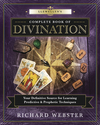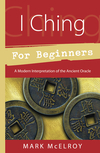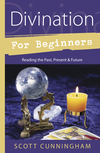Exploring the I Ching: Can Ancient Oracles Address Modern Challenges?

Even in a world where your Aunt Bessie practices feng shui and Madonna talks Cabala, most people scratch their heads when someone mentions the I Ching. "Wait, wait—don't tell me," they say. "I Ching … isn't that some kind of root you can smoke to cure your diabetes? No? That weird Eastern religion whose leader got arrested? No? Oh, wait! I know! It' that herbal additive they put in buffet food to make everyone eat less!"
Things are slightly better in the metaphysical community, where most people at least know the I Ching (pronounced eee-ching or yee-zhing, but not eye-ching) is a book of ancient wisdom frequently used for divination. Still, very few people know about the book's origins—or when or why or how to consult it. And why should they? What relevance could a 3,500-year-old book of Chinese wisdom possibly have in the age of AIDS, Karl Rove, and Al Qaeda?
A Truly Ancient Advisor
There's nothing like an ancient pedigree to give a divination system some weight and authority. That's why occultists in the late nineteenth and early twentieth century were so eager to find (or, more accurately, fabricate) the "Egyptian" roots of Tarot. Doing divination with "the keys of ancient kings" commands more romance and mystery than doing divination with a deck of cards formerly used to play an Italian parlor game.
I Ching is, for all practical purposes, a database describing every conceivable human event. What keeps this from becoming a dull laundry-list of life situations is the book's unique structure: in addition to describing every possible type of event, the I Ching provides detailed insights into how each of these situations gives rise to the others.
One Thing Leads to Another
At the ripe old age of forty-one, I've been around the bush a few times. When the boss says,"I'm not sure whether our department will be laid off or not," I know what's coming. When a president promises, "No new taxes," I get a powerful sense of déjà vu. When I get an email from a Nigerian stranger promising me twenty percent of eighty million dollars, I know to click delete—and so do you. Now, take your current level of life experience and multiply it by 3,500 years. If you're good at knowing what's coming now, think how much better you'd be with a few thousand lifetimes under your belt! That's the promise and power of the I Ching. And that's the reason why it's also called The Book of Changes: the I Ching is a map of life, showing in great detail how one event tends to flow, or change, into another.
I Ching isn't as popular as, say, Tarot, is the simple fact that the book is a product of its time. Many translations are scholarly, making them difficult for modern audiences to read and apply. Its imagery, rooted in ancient Chinese culture ("A stranger with purple rags around his knees approaches you!"), makes no sense to most twenty-first century readers. Its truths are often packaged in the political and social conventions of a bygone era.
Making the Oracle Approachable
I Ching for Beginners seeks to make the ancient oracle's wisdom relevant to twenty-first century life. The book presents a simplified oracle, based on the divinatory text of the I Ching, written in contemporary English. Without compromising the authenticity of the divinatory process, streamlined instructions make consulting the book easier than ever before. I Ching often said, "I see the advice, but I'm not sure how to apply it." So, in addition to the divinatory passages, I Ching for Beginners includes keywords, brief paragraphs describing what each chapter encourages and warns against, and a list of questions designed to help you apply the book's wisdom to all kinds of situations, including your work and relationships. With I Ching for Beginners, you can access thousands of years of insight in seconds. Follow the simple instructions, consult the book, and put its wisdom to work in your life. You'll be amazed at how often its moderating influence positions you to take best advantage of whatever life sends your way.

About Mark McElroy
Related Products



is subject to certain Terms and Conditions